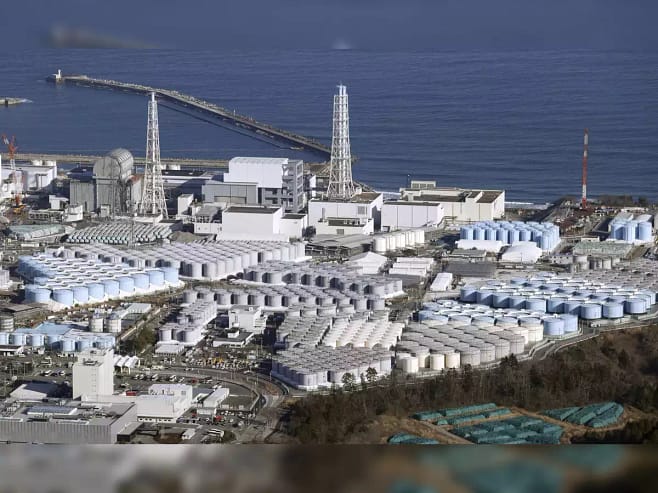Fukushima Nuclear Plant Releases Treated Radioactive Water into Pacific Ocean
Japan’s Fukushima Daiichi nuclear power plant has initiated the discharge of over 1 million tonnes of treated radioactive water into the Pacific Ocean. This decision, approved by the Japanese government, has sparked international protests, import bans, and concerns from nearby fishing communities. The operator of the plant, Tokyo Electric Power (TEPCO), began the water release despite objections from China and South Korea.

Image Credit: Telegraph India
The release, expected to span 30 to 40 years, is deemed safe by Japan and the International Atomic Energy Agency (IAEA), which stated that the impact on people and the environment would be minimal. TEPCO assured that the release process started smoothly without any immediate issues.
The treated radioactive water discharge has raised controversy due to potential environmental and health risks. While Japan argues for the necessity to clear space at the Fukushima Daiichi plant, other nations have criticized the move. The ongoing Fukushima nuclear disaster remains a challenge, and the clean-up process involves careful management of risks.
Despite Japan’s claims that the treated water will be diluted to safe levels, concerns persist among experts about potential consequences for marine life and human health. Fishing groups in Japan fear reputational damage and sales loss, leading to export restrictions in certain markets.

Image Credit: The Economic Times
China’s criticism of the release, Hong Kong and Macau’s seafood bans, and Tokyo’s counterarguments underscore the global debate over the action’s impact. The initial discharge of 7,800 cubic meters is projected to last approximately 17 days, while the entire process of releasing over 1.3 million metric tons of wastewater is expected to extend for decades.
The contaminated water resulted from cooling three nuclear reactors that suffered meltdowns after a powerful tsunami hit the Fukushima Daiichi plant in 2011, leading to a nuclear crisis. This event marked the world’s most significant nuclear accident since the Chornobyl disaster.
Also go through: RBI Governor Anticipates Decline in Vegetable Price Inflation


